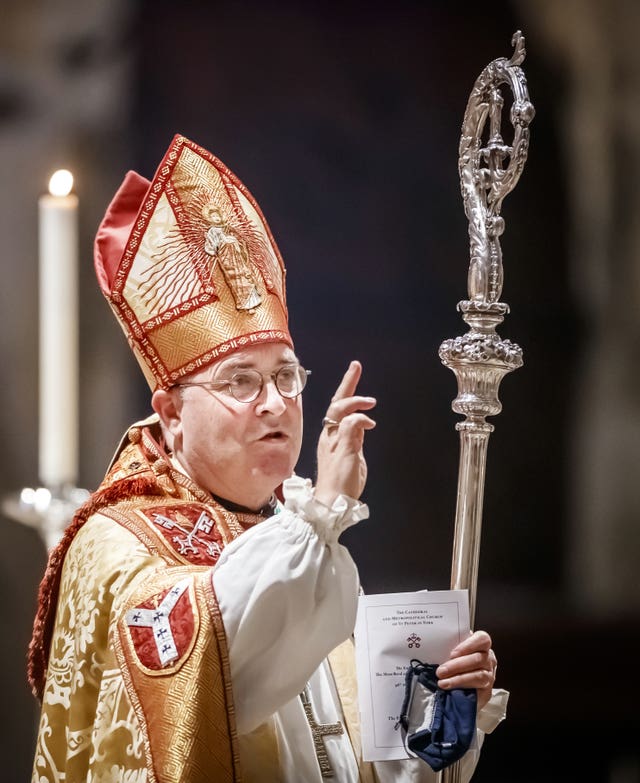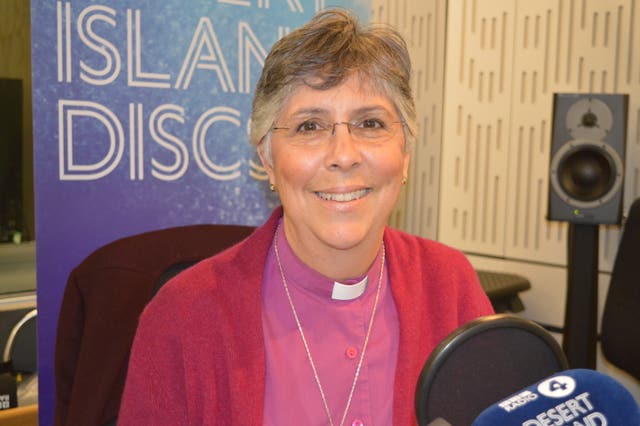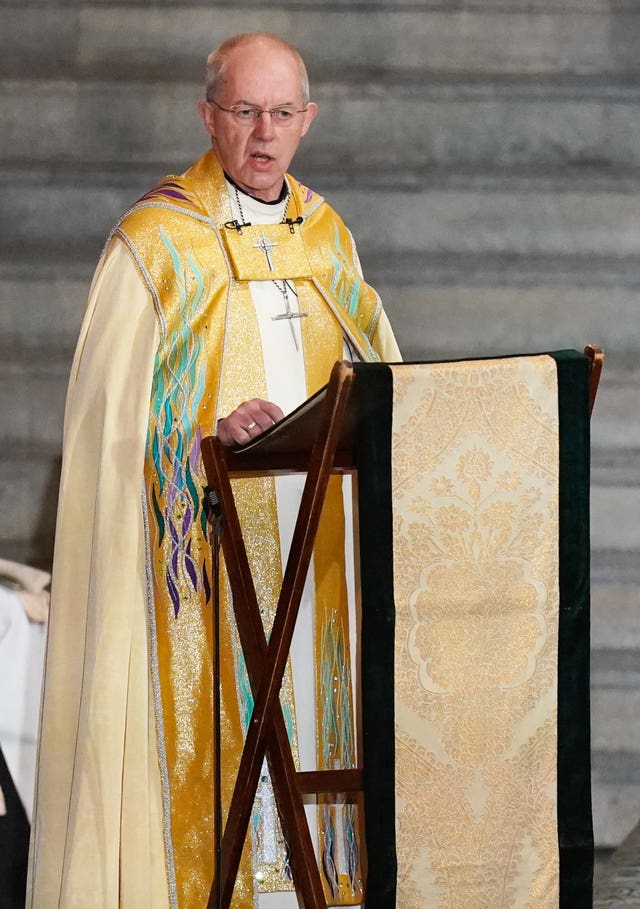The new person to take the role of the Church of England’s most senior bishop is expected to be announced in the coming weeks.
A quarter of people think the next archbishop of Canterbury should talk less about political topics and that it is unacceptable for someone in the role to speak about immigration and asylum, new polling has suggested.
The Church of England’s most senior bishop is expected to be named in the coming weeks, almost a year after Justin Welby announced he was to resign over failures in handling a safeguarding scandal.
Archbishop of York Stephen Cottrell, who has been the stand-in while the top Canterbury role is vacant, recently waded into the current debate on immigration, accusing Reform UK leader Nigel Farage of an “isolationist, short-term kneejerk” response to the Channel crossings crisis.

Mr Cottrell said Mr Farage, who has promised mass deportations, was not offering a solution to the “big issues” driving people in small inflatable boats to risk the dangerous crossing.
New Ipsos polling, for the PA news agency, suggested 28% of respondents want whoever ends up as the new archbishop of Canterbury to talk less about political topics, while less than a fifth (17%) think they should speak out more.
Almost two in five people (37%) feel it is acceptable for the Church of England’s most senior religious leader to speak about immigration and asylum but 25% say it is unacceptable for them to do so.
While no shortlist of candidates has been published, one of those thought to be a favourite for the role is a former refugee who fled Iran with her family as a teenager in the wake of the Iranian revolution in 1980.
Bishop of Chelmsford, Guli Francis-Dehqani, who has previously spoken of her own story and how she has “a sense of the real trauma that many asylum seekers have experienced”, would also make history by becoming the first female archbishop of Canterbury were she to be selected.

Others thought to be in the running include the Bishop of Bath and Wells, Michael Beasley, a former epidemiologist who was a member of the Church’s Covid taskforce during the pandemic.
A committee, chaired by a former director-general of the MI5 security service, must reach a two-thirds majority decision on who should be the new archbishop, with a nomination then presented to the Prime Minister who passes it to the King.
While technically the King is head of the Church of England, the person holding the role of archbishop of Canterbury is the most senior bishop and is the spiritual leader of the Church and the worldwide Anglican Communion.
In a job description published earlier this year by the Diocese of Canterbury, it was stated the person filling the role should be someone willing to be “unapologetic about offering a Christian perspective to local, national and international dialogue”.
The Ipsos polling for PA found that more than half of people felt it acceptable for someone in the role to speak out about homelessness and poverty, and 40% said it was acceptable to speak out on welfare benefits.
Around a third felt a new archbishop should speak out even more than previous people in post to promote charitable causes and about social issues and challenges facing the country.

During his time in the role, Mr Welby had been outspoken on issues of poverty, calling for the controversial two-child benefit cap to be scrapped, and had strongly criticised the previous Conservative government’s scheme to send asylum seekers to Rwanda, which he warned was “leading the nation down a damaging path”.
Overall, almost three-quarters (74%) of people said they do not personally care about who becomes the next archbishop of Canterbury.
Almost two-thirds (62%) of Christians – not necessarily only those from a Church of England background – felt this way.
Less than a fifth (18%) of people said they were paying attention to news about the new archbishop of Canterbury, with issues including the cost of living and the wars in Ukraine and Gaza among the stories the public were following more closely.
:: Ipsos polled 1,100 British people online aged 16 to 75, including 505 people who identified as Christian, between September 12 and 15.

